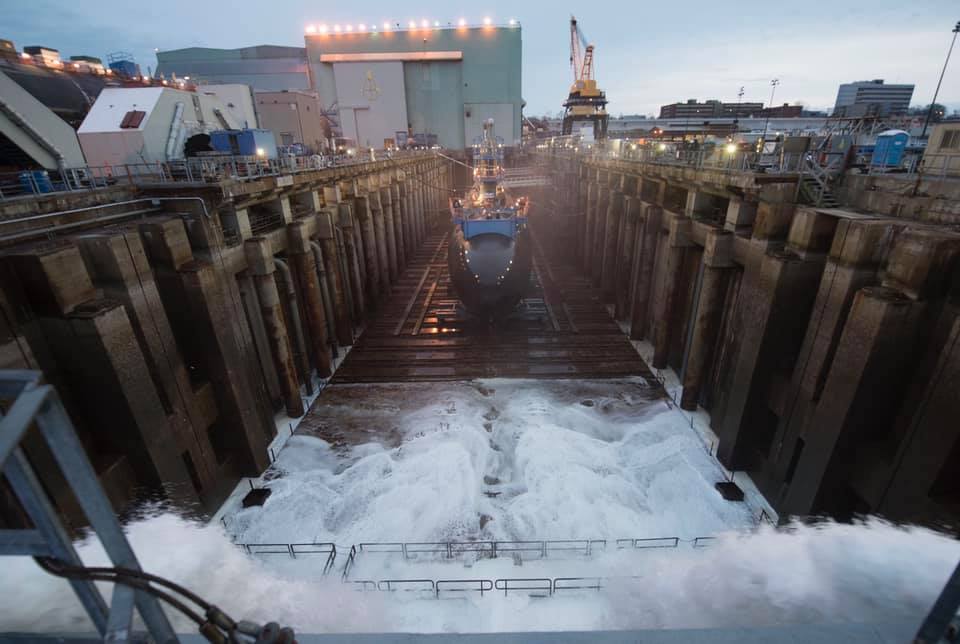
The Navy needs to resist “requirements creep” in changing designs to complete its number one strategic priority, the Columbia class ballistic missile submarine program (SSBN-826), Navy Secretary Carlos Del Toro said on Monday at a virtual conference hosted by the Southeastern New England Defense Industrial Alliance.
Del Toro stressed that the defense industry needs to be equally observant in holding down costs.
“We must not lose sight of China” as the nation’s pacing security threat, Del Toro said. He specifically mentioned that the United States must “prevent them from taking over” as an immediate threat.
Speaking at the same conference, Senate Armed Services Committee Chairman Sen. Jack Reed (D-R.I.), said “we want to deter their activities” in the Taiwan Strait and South China Sea.
Del Toro added China is “committed to being a full-scale competitor” of the United States globally. “That’s why we have to accelerate our efforts in technology.”
Among the advances China has made in the past year, Del Toro and Reed cited its work on hypersonic weapons, artificial intelligence and machine learning, the delivery of 22 warships – both surface ships and submarines – and the continued expansion of its land-based nuclear force.
Both Reed and Del Toro also cited Russia’s modernization of its nuclear forces and its expanding nuclear submarine force as a threat that had to be addressed.
“We must be present; we must be persistent; we must be postured,” Del Toro said on deterring Russia and China.
Beijing “is making a big effort” to take the lead in science, technology and mathematics, Reed said. China’s efforts include recruiting students from abroad to attend its universities and technical institutes and then having them pursue careers in the country. More work needs to be done in extending U.S. visas to foreign students interested in studying at American universities, Reed said. He added there needs to be increased emphasis on keeping them in the United States following graduation to work in high-tech industries.
Reed said he wanted Congress and the Pentagon to end their “perverse habit of being the first inventor and last adapter” of technological advances. Several times during his remarks he referred to the American lead in undersea technologies, including underwater unmanned vehicles being used for everything from intelligence to logistics, as examples of what’s at stake in the near future.
Going beyond science and technology and research and development programs, Reed said, “we must invest in advanced manufacturing” and reevaluate the exposure in the defense industrial base’s supply chain in light of the COVID-19 disruption in production and shipping practices.
Del Toro and Reed called for cutting the red tape that small businesses encounter when trying to win defense business. The secretary, the owner of a small business before taking office, said he “was committed to creating true partnerships” with them in his tenure.
Reed said there was a need to create the equivalent of the Defense Advanced Research Projects Agency (DARPA) to handle management reforms in the Pentagon.





